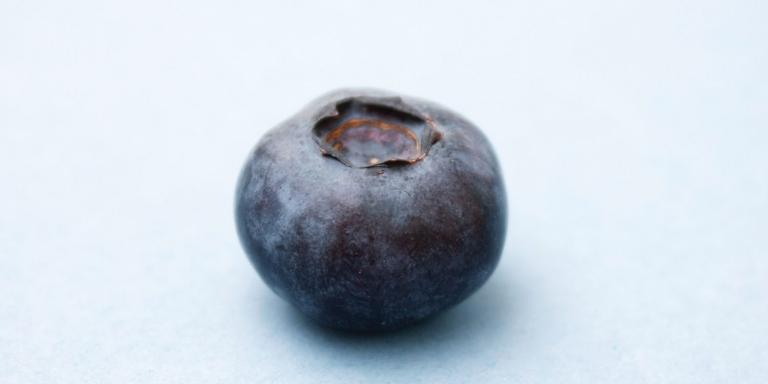Remember the fun you had picking berries as a child? (One for you, one for the pail, one for you . . .)
Maybe the memory isn't so sharp. If your ability to recall the past--or the location of the car keys--is not what it was, take heart. While memory loss and other age-related decline used to be considered inevitable, new research shows that powerful antioxidants in plant foods like blueberries can slow or even reverse impairments in memory and motor skills associated with getting older. And that's only the beginning of what this tasty berry can offer.
Antioxidant Power
A few years ago the US Department of Agriculture surveyed more than 100 different foods to determine their antioxidant content. Blueberries were the highest-ranking fruits on the list, with a total antioxidant capacity of 13,427 and 9,019 per cup of wild and cultivated berries, respectively.
"Dietary supplementation with fruit or vegetable extracts high in antioxidants (e.g., blueberry extracts) might decrease the enhanced vulnerability to oxidative stress that occurs in aging," note authors of a review published in the American Journal of Clinical Nutrition. "These reductions might be expressed as improvements in motor and cognitive behavior," they add.
Earlier research from this Tufts University team determined that extracts of blueberry, strawberry, and spinach all helped improve short-term memory in elderly rats. Only the blueberry extract, however, improved coordination and balance--which may help guard against dangerous falls.
More Benefits
Anthocyanins that provide the berries' distinctive blue-red pigment help protect against free radical damage to cells and tissues responsible for varicose veins, cataracts, heart disease, and other conditions. Scientists at the Agricultural Research Service recently announced that blueberry skins controlled the cholesterol levels of hamsters fed a high-cholesterol diet--even better than lipid-lowering drugs. What's more, the fruit's undiluted juice appears to help reduce the risk of urinary tract infections by preventing bacteria from adhering to cell walls.
This berry grows on a shrub in the heath family--other members of which include health powerhouses cranberry and bilberry. Although no study has yet compared the relative effects of fresh, frozen, canned, and juiced berries, each form of this fruit has been shown to contain the essential constituents that offer the most exciting and well-researched benefits. Packed with flavor and whole food nutrition, one cup of fresh blueberries offers 14 percent of your daily value of fiber but contains very little fat, calories, or sodium. The whole fruit is also a good source of vitamins C and E, plus the mineral manganese.
Berry Picking
Enjoy these North American natives by the handful at their peak from May through October. At the market, select blueberries with uniform color. They should be firm and move freely in the container when gently shaken. Store fresh, ripe blueberries in a covered container in the refrigerator. Be sure to remove any damaged berries before storing, and wait to wash the delicate fruit until just before you want to eat it or use it in a recipe. Like the tart, delicious juice and dried fruit, frozen blueberries are available in all seasons. In the frozen food section, look for a package in which the berries move freely. These are well suited for baking, making smoothies, and other treats right out of the bag.

